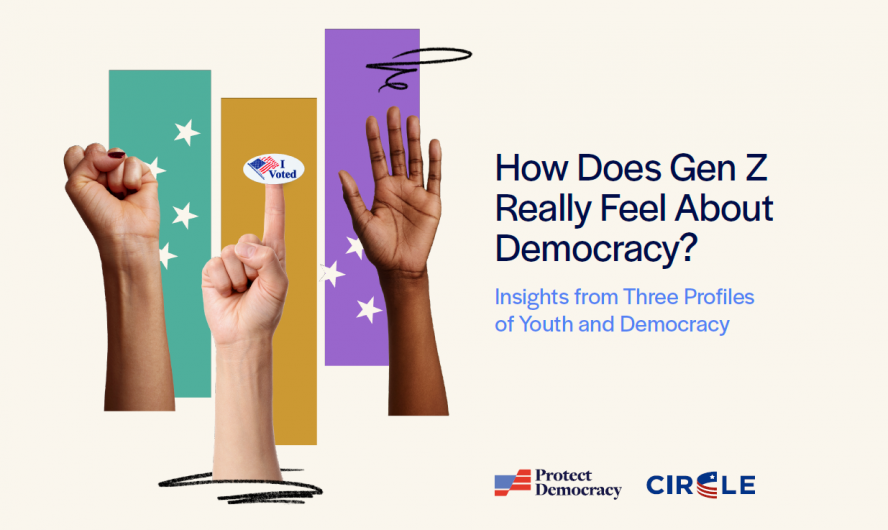Report: How Does Gen Z Really Feel about Democracy?
Authors: Center for Information & Research on Civic Learning and Engagement (CIRCLE) and Protect Democracy
A major new report, produced jointly by CIRCLE and Protect Democracy, provides a nuanced examination of diverse attitudes about democracy among Gen Z, with major implications for youth civic engagement and pro-democracy efforts in the years to come.
How Does Gen Z Really Feel about Democracy? uses data from a nationally representative poll of youth conducted after the 2024 presidential election to paint a complex and worrisome picture of young people's relationship to democracy in this moment. Our main finding is that the majority of young people (ages 18-29) support democracy in principle, but believe that the democracy they are experiencing today cannot solve the nation's problems and is not working well for their generation.
Using advanced statistical analyses, we identify three distinct profiles of Gen Z attitudes toward democracy, each of which presents unique challenges and will require distinct efforts to strengthen democratic engagement. These profiles are:
- Passive Appreciation: The majority of youth (63%) value the basic values and practices of democracy, but they are relatively disengaged from civic action and may be passive in the face of current threats to democracy.
- Dismissive Detachment: Nearly a third of young people express lower support for core democratic principles; they are "checked out" of a democracy that has not served them well or met their needs.
- Hostile Dissatisfaction: A small (7%) but significant number of young people believe in the principles of our system of government, but are extremely dissatisfied with our democracy as it exists today, and they are willing to consider political violence in order to achieve change.
The report examines how various dimensions of civic access and support relate to democratic attitudes, thereby identifying potential avenues for action to improve young people's relationship to democracy. It calls on stakeholders to center the multifaceted diversity of Gen Z, including in its views toward democracy, in order to strengthen a democratic system that must meet young people where they are and fulfill their expectations.



